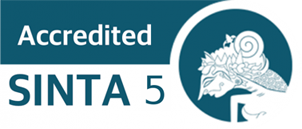TEORI PENDIDIKAN HUMANISTIK DAN IMPELEMENTASINYA DALAM PROSES PEMBELAJARAN
Abstract
Learning should help people become more like themselves, says humanistic thinking.Assuming the learner has a firm grasp on both himself and his immediate surroundings, we may say that the learning process has been fruitful. Put another way, pupils are able to reach their full potential as individuals. Among the numerous advantages of incorporating humanistic approaches into equitable learning are the following: the cultivation of a more complete person, a more developed conscience, a shift in societal attitudes and phenomena, the establishment of routines that are more democratic, participatory, dialogic, and human, the promotion of an atmosphere of mutual respect in the classroom, the promotion of free speech, and the submission of ideas. Reading, taking notes, and organizing research resources are all part of library research, which is a way of gathering library data. Learning within the context of humanistic philosophy, this study's findings support the premise that students perform better academically when they are emotionally and psychologically well-supported. It also confirms that students develop greater resilience and self-assurance when they are more comfortable opening up about their thoughts, feelings, values, expectations, and aspirations. Personality and conscience development, attitude and thought shifts, examination of social phenomena, democratic and participatory learning, interactive and human nurturing are just a few of the many advantages of using humanistic methods to equitable learning.
References
Aji, A., Ma, J., & Srihandayani, N. (2023). Filsafat Pendidikan Humanistik ( Pendekatan Relevan Pendidikan Abad 21 ). 1(2), 100–110.
Anggraini, G. O., & Wiryanto, W. (2022). Analysis of Ki Hajar Dewantara’s Humanistic Education in the Concept of Independent Learning Curriculum. Jurnal Penelitian Ilmu Pendidikan, 15(1), 33–45. https://doi.org/10.21831/jpipfip.v15i1.41549
Anwar, B. (2020). Pendidikan Humanistik Dalam Belajar. Inspiratif Pendidikan, 9(1), 126. https://doi.org/10.24252/ip.v9i1.14469
Arbayah. (2013). Model pembelajaran humanistik. Dinamika Ilmu, 13(2), 220. https://journal.iain-samarinda.ac.id/index.php/dinamika_ilmu/article/view/26
Boiliu, E. R., Boiliu, N. I., & Rantung, D. A. (2022). Teori Belajar Humanistik Sebagai Landasan dalam Teknologi a Agama Kristen. Edukatif : Jurnal Ilmu Pendidikan, 4(2), 1767–1774. https://doi.org/10.31004/edukatif.v4i2.2180
Diana Devi, A. (2021). Implementasi Teori Belajar Humanisme dalam Proses Belajar Mengajar Pendidikan Agama Islam. At- Tarbawi, 8(1), 71–84. https://doi.org/10.32505/tarbawi.v13i1.2805
Fentia, L. I. A., Zalni, R. I., & Utami, N. (2023). Vol. 5 No.2 Edisi 1 Januari 2023 http://jurnal.ensiklopediaku.org Ensiklopedia of Journal. 5(2), 62–68.
Hastutiningsih, P., Putri, I. W., & Fauziati, E. (2021). Implementasi Pendidikan Humanis Pada Pembelajaran Perhiasan di SMK Negeri 9 Surakarta. Sukma: Jurnal Pendidikan, 5(1), 79–94. https://doi.org/10.32533/05105.2021
Hidayat, W., Jahari, J., & Nurul Shyfa, C. (2020). Manajemen Kelas Dalam Meningkatkan Proses Pembelajaran Di Madrasah. Jurnal Pendidikan UNIGA, 14(1), 308. https://doi.org/10.52434/jp.v14i1.913
Indriyani, N., & Desyandri. (2022). Konsep pendidikan mereka belajar dalam pandangan filsafat humanisme. Pendas: Jurnal Ilmiah Pendidikan Dasar, 07(2), 668–682.
Jumarudin, Gafur, A., & Suardiman, S. P. (2014). Developing a Humanist-Religious Learning Model for Character Building in Elementary Schools. Jurnal Pembangunan Pendidikan: Fondasi Dan Aplikasi, 2(2), 114–129.
Kurniawati, K., Santoso, S., & Utomo, S. (2021). the Effect of Snowball Throwing and Problem Based Learning Models on Students’ Social Science Learning Motivation At Grade Iv Sunan Ampel Demak Cluster. JURNAL PAJAR (Pendidikan Dan Pengajaran), 5(4), 1102. https://doi.org/10.33578/pjr.v5i4.8361
Mansir, F. (2022). The Humanistic Education Model in Virtual Learning During COVID - 19 Pandemic. Jurnal Sosiologi Pendidikan Humanis, 7(1), 1–11. http://journal2.um.ac.id/index.php/jsph/article/view/24988/pdf
Maulidina, H. (2019). No Titleس. ペインクリニック学会治療指針2, 2(2), 1–13.
Mayasari, S. (2017). Filsafat Pendidikan Humanisme Dalam Perspektif Pembelajaran Bahasa Inggris Bagi Peserta Didik Di Tingkat Sekolah Menengah Atas: Sebuah Kajian Teori. Akademik, 3(1), 629–637. file:///C:/Users/ASUS/Downloads/1069-1334-1-PB.pdf
Muhammad, D. H. (2020). Implementasi Pendidikan Humanisme Religiusitas dalam Pendidikan Pendidikan Agama Islam di Era Revolusi Industri 4.0. Edumaspul: Jurnal Pendidikan, 4(2), 122–131. https://doi.org/10.33487/edumaspul.v4i2.581
Nur Zaini. (2019). Konsep Pendidikan Humanis Dan Implementasinya Dalam Proses Belajar Mengajar. Karangan: Jurnal Bidang Kependidikan, Pembelajaran, Dan Pengembangan, 1(01), 62–72. https://doi.org/10.55273/karangan.v1i01.7
Qodri, A. (2017). TEORI BELAJAR HUMANISTIK DALAM MENINGKATKAN PRESTASI BELAJAR SISWA Abd. Jurnal Pedagogik, 04(02), 188–202.
Riyanton, M. (2015). Pendidikan Humanisme dan Implementasinya Dalam Pembelajaran Bahasa Indonesia. Jurnal Ilmiah Lingua Idea, 6(1), 1–18. http://jos.unsoed.ac.id/index.php/jli/article/view/327
Sa’dullah, A. (2019). Ontologi Pendidikan Humanis Dan Relevansinya Dengan Pendidikan Di Era Global. Jurnal Pendidikan Islam, 4(2), 131–136.
Sabaruddin, S. (2020). Sekolah dengan konsep pendidikan humanis. Humanika, 20(2), 147–162. https://doi.org/10.21831/hum.v20i2.29306
Sidik, F. (2016). Pendidikan Humanis dan Implikasinya Dalam Pembelajaran. Tadbir: Jurnal Manajemen Pendidikan Islam, 4(1), 88–95.
Umar, M. (2018). Pendekatan Humanistik dalam Proses Pembelajaran Program Pendidikan Kesetaraan Paket C. Jurnal Pendidikan Nonformal, 13(2), 70–77.
Widodo, H. (2018). Pengembangan Respect Education Melalui Pendidikan Humanis Religius Di Sekolah. Lentera Pendidikan : Jurnal Ilmu Tarbiyah Dan Keguruan, 21(1), 110–122. https://doi.org/10.24252/lp.2018v21n1i10
Zhafiroh, S., & Zaman, B. (2020). Implementasi Pendidikan Humanis Pada Pembelajaran Pendidikan Agama Islam di SMPN 1 Tulung. Quality, 8(2), 187. https://doi.org/10.21043/quality.v8i2.7659
Copyright (c) 2023 Susan N.H Jacobus, Harol R. Lumapow, Lady Pangalo

This work is licensed under a Creative Commons Attribution-NonCommercial-ShareAlike 4.0 International License.







